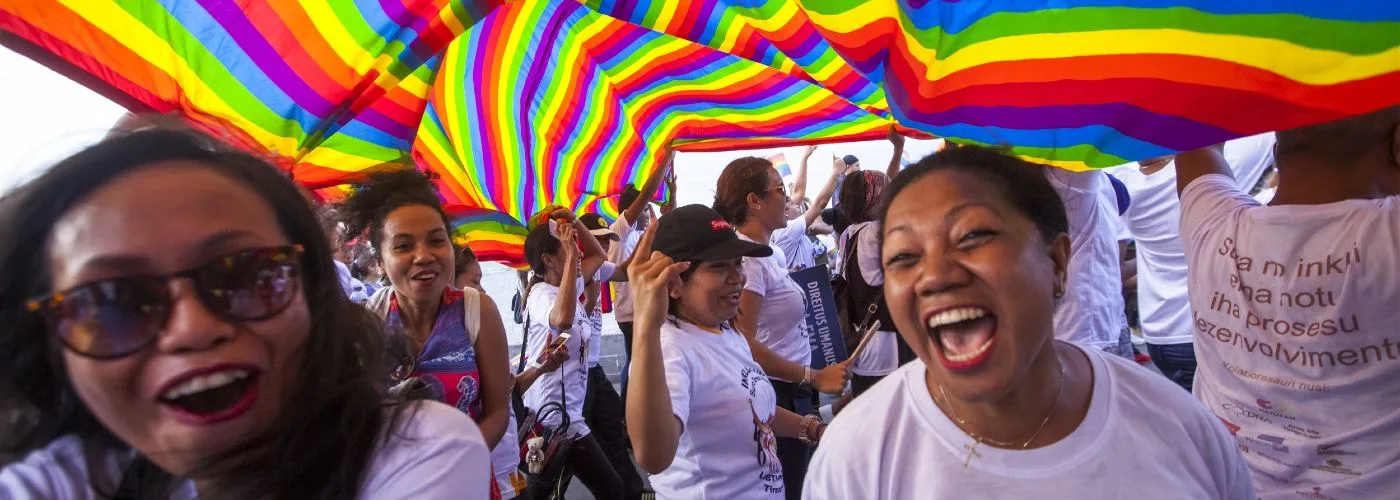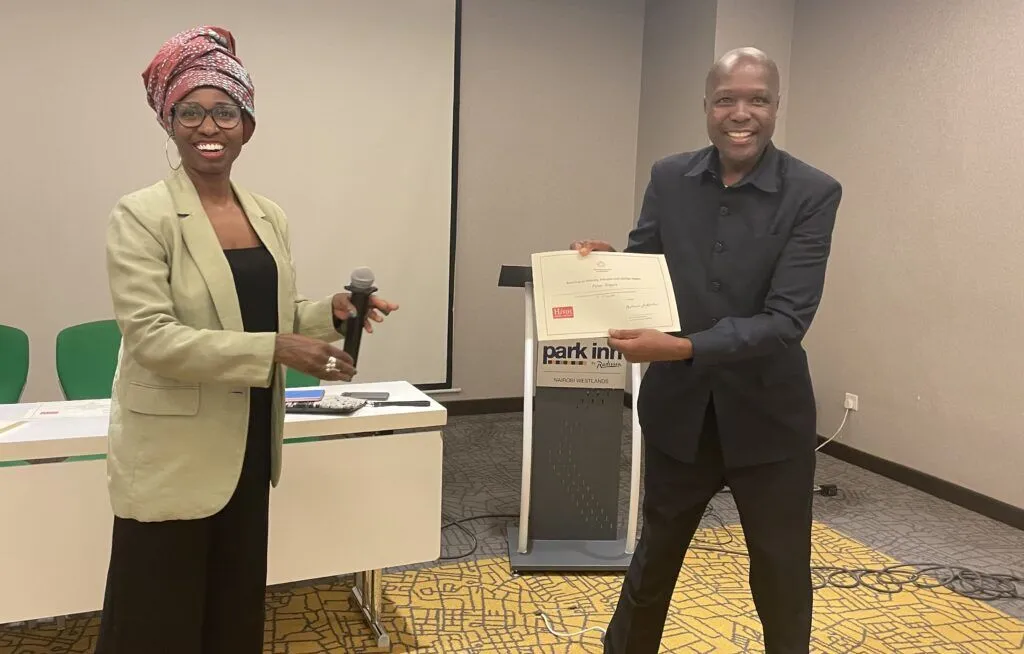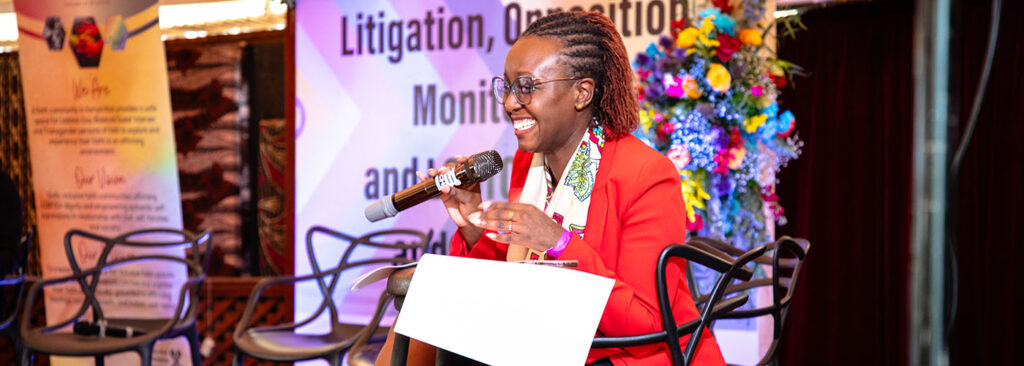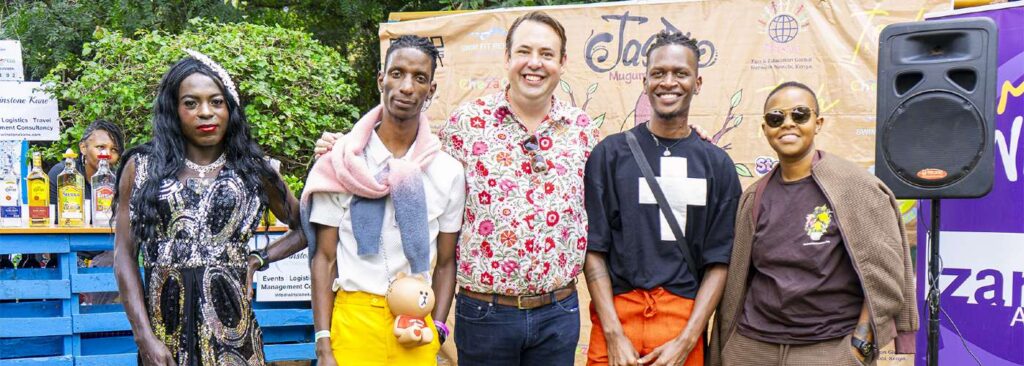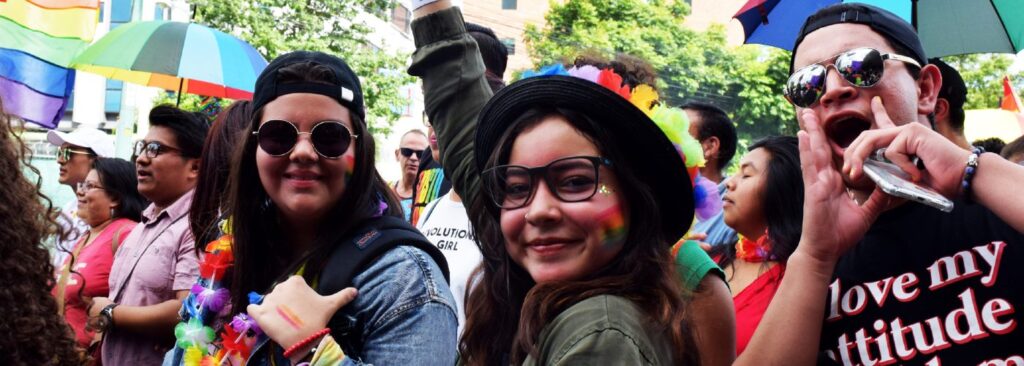The media has a critical role in upholding the rights of the LGBTIQ+ community and fostering greater understanding. Our Free to be Me program aims to ensure that societal leaders, influencers, media and the public increasingly and openly support the rights of LGBTIQ+ people.
As part of Free to be Me, we enlisted the support of the Thomson Reuters Foundation to run training courses in Kenya, Namibia and the Philippines to equip journalists to report on LGBTIQ+ issues in complex environments. We also trained civil society organizations working on diversity and inclusion on media and communications skills.
Our dual-track approach brought together participants from both groups, connecting journalists with representatives of the communities they cover. At the end of the program, journalists pitched to be part of a 10-week mentorship program to develop a story on LGBTIQ+ issues.
Kenyan journalist Peter Ongera explains how the training changed his perspective on LGBTIQ+ issues and enabled him to report in a more inclusive and representative way.
“Before I joined the Thomson Reuters Foundation training on inclusive LGBTIQ+ reporting, my journalism focused primarily on public health, social issues, and governance in Kenya. While I often covered HIV/AIDS, community struggles and development aid, I now realise that I approached these stories from a conventional, mainstream perspective — one that unintentionally overlooked the voices and experiences of marginalized groups, particularly LGBTIQ+ people. My framing lacked the sensitivity and depth required to highlight how stigma, identity, and systemic inequality shape everyday realities.”
“Being part of this journey has made me a more thoughtful, intersectional, and justice-driven journalist. I no longer just report on communities — I report with them.”
A transformative experience
“The training was transformative. It covered inclusive language, ethical storytelling, intersectionality, and the importance of sourcing stories responsibly and safely — especially in sensitive and hostile reporting environments. Our cohort was diverse, including journalists like myself, as well as civil society actors, LGBTIQ+ individuals, and activists. That diversity enriched our discussions, grounding the lessons in lived realities.
One session that stayed with me involved real-world case studies and peer feedback. It forced me to confront unconscious bias and rethink how even a headline can harm or humanise. I remembered how I was once publicly criticised for titling a story ‘Are You Male, Female, or Abnormal?’ — and how I had to change it to ‘Are You Male, Female, or Intersex?’ after backlash.
That experience, combined with the training, reshaped not only how I write but also how I listen. I now prioritise informed consent, dignity, and safety when working with sources — and I take time to build trust, particularly with those whose stories are often silenced or sensationalised.”
Connections with sources
“The impact of the training didn’t stop at the classroom. I built lasting connections, including with the publishers of Forward Together Africa — a news platform founded by fellow trainees, where I now contribute stories centred on inclusion, justice, and equality.
I also established a working relationship with the Communications Officer at the Gay and Lesbian Coalition of Kenya, who continues to help me access trusted sources and community voices.”
Sensitive reporting
“This shift in my reporting is reflected in my commissioned article for Context, the Thomson Reuters Foundation’s global news platform. I examined how shrinking U.S. aid is affecting Kenya’s grassroots HIV/AIDS response— with a spotlight on vulnerable communities often left out of donor conversations. I also recently covered the stigma faced by trans and non-binary people in Kenya who menstruate, speaking to people about the challenges they face in accessing period products. The training equipped me to tell those stories with nuance, integrity, and inclusion.
Being part of this journey has made me a more thoughtful, intersectional, and justice-driven journalist. I no longer just report on communities — I report with them.”
This piece was first published by the Thomson Reuters Foundation

